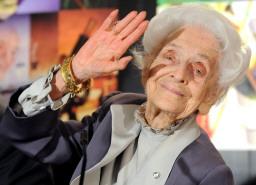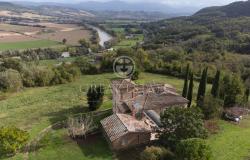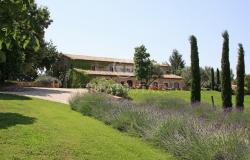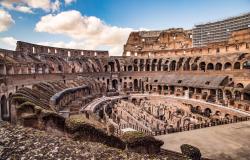Italian Nobel laureate Rita Levi Montalcini, who turns 100 next week, said on Thursday she believes her mind is sharper now than when she was 20.
''Fortunately I don't have Alzheimer and, if I'm not kidding myself, I believe my mind is sharper now than when I was 20 because I've been enriched by so many experiences and my curiosity and desire to be close to those who suffer have not been diminished by age,'' Montalcini told colleagues feting her at the Higher Health Institute (ISS).
Asked to disclose the secret behind her long and healthy life Montalcini said: ''be happy to be alive and to be of service to others''.
''Perhaps the secret is to totally forget about yourself''.
Montalcini said she was not afraid of dying.
''I don't care when it comes,'' she said, explaining that her life has been so full and so rewarding that ''it doesn't matter if it ends tomorrow''.
She also revealed that before becoming a scientist she was planning to follow Albert Schweitzer's example and head to Africa to help lepers.
In the past, the outspoken scientist has come out against obliging people to retire, something she defined as ''pre-death'', and has sharply criticised government spending cuts to scientific research and development.
She also bashed conservatives and the Church for opposing embryo research and accused fellow scientists of being co-responsible for the development of lethal high-tech weapons.
Montalcini received the Nobel Prize for Medicine in 1986 with the US scientist Stanley Cohen for their discovery of the Nerve Growth Factor (NGF) in the peripheral nervous system.
She was born in Turin on April 22,1909 and obtained a summa cum laude degree in medicine and surgery from the city university in 1936.
Two of her university colleagues and close friends were Salvador Luria and Renato Dulbecco, who were later to receive the Nobel prizes in physiology and medicine, respectively.
After specialising in neurology and psychiatry she began work as a university assistant but, in 1938, was forced by Fascist religious persecution laws to leave her job. However, she continued her research from her home.
Her most important work was carried out during her stay at Washington University in St. Louis, Missouri.
She is a member of numerous scientific academies, including the American Academy of Arts and Sciences, the Pontifical Academy of Sciences, the Royal Society of London and was the first woman to be admitted to Italy's Accademia Nazionale dei Lincei in 1976.
In 2001, she revealed she had lost her eyesight but would continue working because her path was illuminated by the ''light of science''.










